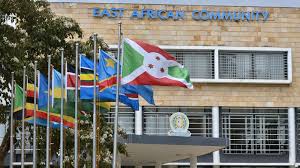The Kenyan government has suspended all avocado exports by sea starting October 20, 2025, to protect the quality of the fruit and ensure only mature avocados are harvested for export.
In a statement released by Dr. Bruno Linyiru, the Director General of the Agriculture and Food Authority (AFA), the decision follows a nationwide survey that found the main season crop is not yet mature enough to sustain continued exports.
“The Authority shall continue to monitor avocado maturity trends and review this notice in the second week of January 2026 to guide exporters appropriately,” the statement read.
According to AFA, premature harvesting has in the past caused poor fruit quality, disrupted crop cycles, and reduced yields in later seasons.
By suspending sea exports, the Authority hopes to protect Kenya’s
international reputation as a leading exporter of high-quality avocados, while also supporting farmers with better long-term production.
Although sea exports have been halted, air exports of certain varieties — including Hass, Fuerte, Pinkerton, and Jumbo — will still be allowed.
However, every shipment must go through strict inspection by the Horticultural Crops Directorate, and exporters must provide full traceability information before getting export clearance.
The directive also affects avocado oil processors, who are only allowed to export oil that was processed before October 20, 2025. Any oil produced after that date will not be eligible for export.
To enforce compliance, AFA will conduct inspections to verify existing oil stocks before issuing permits.
AFA also issued a stern warning against exporters who have been illegally mixing avocado and mango consignments for sea shipment — a practice that violates export rules.
Going forward, all mango exporters must ensure their shipments contain only mango fruit and must apply for physical inspections by providing their packhouse locations to the Authority.
Dr. Linyiru emphasized that any exporter or processor found violating these guidelines will face severe penalties, including the revocation of licenses and denial of export permits.
The suspension is part of Kenya’s broader effort to maintain its position as a top global avocado supplier by enforcing sustainable farming and export practices. The review planned for January 2026 will determine when the sea export season can officially reopen.



